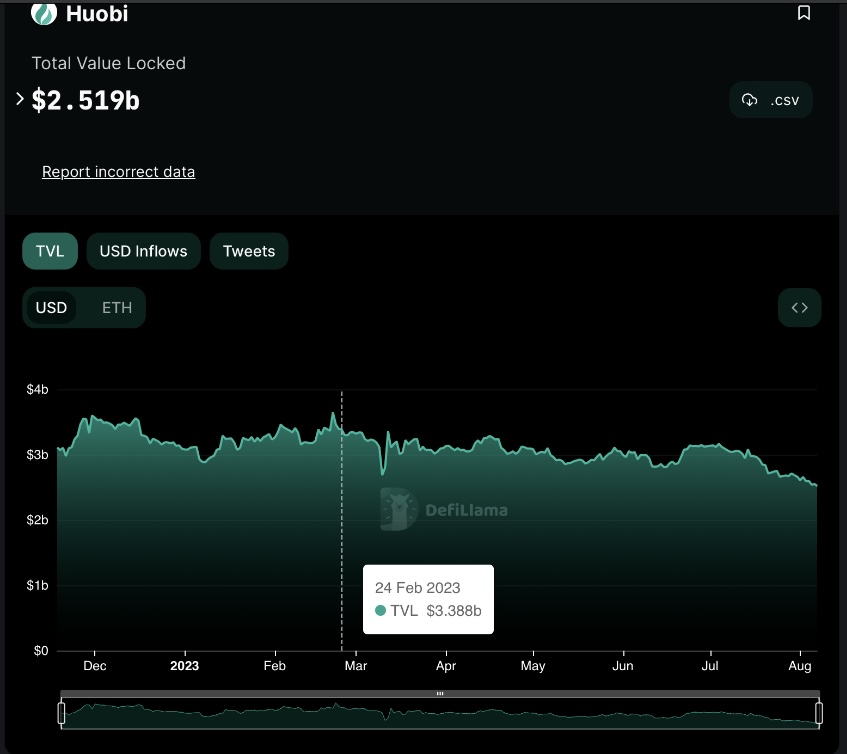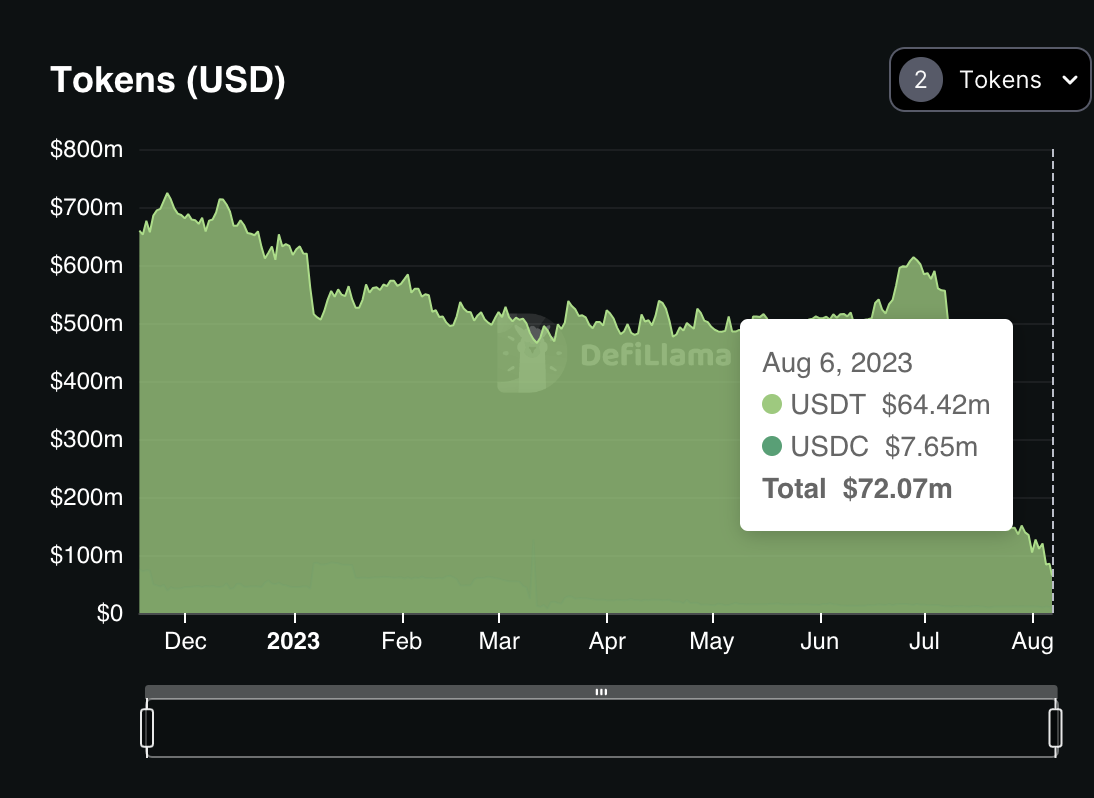The cryptocurrency exchange faces solvency rumors, investigations by Chinese authorities, outflows, and regulatory challenges, while concerns arise about inconsistencies in Tether holdings and departures of executives.

Cryptocurrency exchange Huobi is navigating a turbulent period, with rumors swirling around its solvency and an alleged investigation by Chinese authorities. The Seychelles-based platform grapples not only with solvency rumors and a Chinese investigation but also contends with executive departures and regulatory challenges.
Over the past weekend, Huobi experienced outflows amounting to $64 million, causing its total value locked (TVL) to plummet from $3.09 billion on July 6 to $2.5 billion. These developments have raised concerns about the exchange’s stability and regulatory compliance.

Reports emerged on August 4 suggesting that Huobi’s leadership was under investigation in China due to its alleged involvement with gambling platforms. A spokesperson from Huobi dismissed these claims as false, asserting that the exchange is operating smoothly. The timing of these rumors coincides with increased scrutiny of cryptocurrency exchanges in mainland China.
While a C-level executive recently departed from Huobi, it remains uncertain whether this departure is linked to the ongoing investigations in China. Addressing the rumors on social media, Huobi’s head of social media refuted the allegations and assured the public that the exchange is in a strong position.

Apart from regulatory challenges, concerns have been raised about Huobi’s solvency. Fintech executive and angel investor Adam Cochran highlighted potential inconsistencies in Huobi’s Tether (USDT) holdings.
On August 5, data from DeFiLlama indicated that Huobi held less than $90 million in combined assets across USDT and USD Coin (USDC) tickers, contradicting Huobi’s Merkle Tree Audit, which reported $630 million in USDT held by users. Cochran’s analysis suggests that Huobi may be facing insolvency issues.

Recent data from DeFiLlama on August 6 indicates that Huobi’s USDT and USDC holdings have further dwindled to $72 million. Despite these concerns, Huobi has not yet responded to requests for clarification regarding the alleged insolvency and the disparities between on-chain data and its audit report.
Huobi’s troubles extend beyond China, as it recently faced enforcement action from the Malaysian securities regulator, leading to the closure of its operations in the country in May. These challenges underscore the complex landscape that cryptocurrency exchanges must navigate, balancing regulatory compliance, solvency, and operational stability across various jurisdictions.